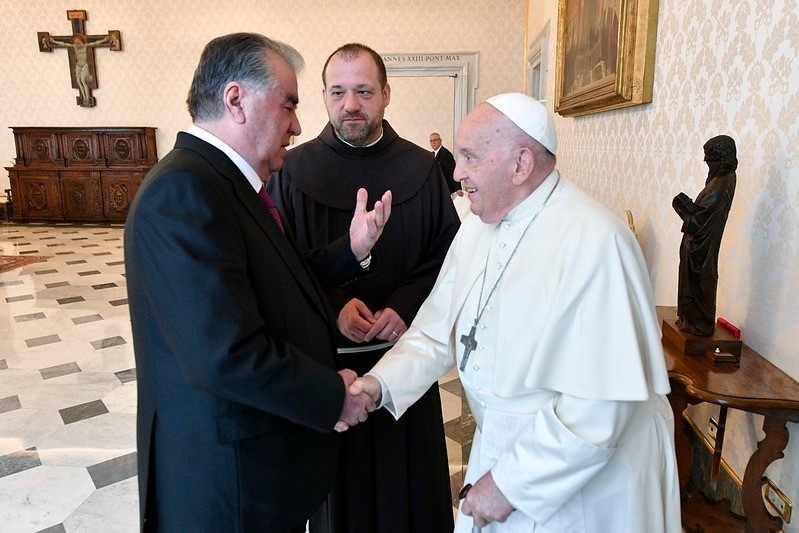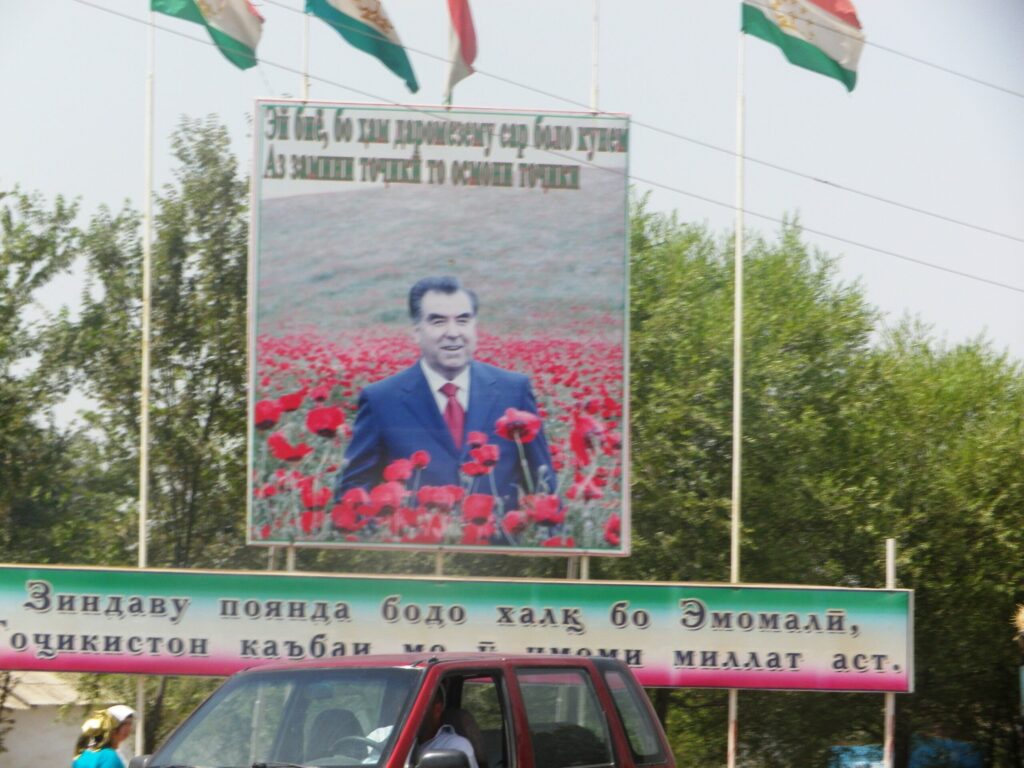President Rahmon Meets with Pope Francis
On April 26, the President of Tajikistan, Emomali Rahmon paid an official visit to the Vatican and met with Pope Francis. According to the press office of the Holy See, during the meeting the good relationship between the Holy See and Tajikistan was emphasized, and mention was made of some aspects of the country’s political and socioeconomic situation. Special attention was also paid to the importance of dialogue and mutual understanding between peoples and cultures for the promotion of peace and stability in the world. The Tajik president’s press service reported that President Rahmon stated that all conditions for tolerance and coexistence of representatives of all religions have been created in Tajikistan. The Tajik people, who have historically made a significant contribution to civilization with the development of science and literature, welcome any inter-religious and inter-civilizational dialogues, the Tajik leader said. Despite Rahmon's rhetirc, however, Tajikistan is a country where religion is often seen as a challenge to the government's authority, and it pays not to be too devout. In September 2015, clashes over the death in police custody of a man detained for "wearing his beard long" led to 17 fatalities. In that year alone, the police forcibly shaved 13,000 men's beards and shuttered over 160 shops selling Muslim clothing. Today, the authorities continue to surveil religious institutions. On his visit to the Holy See, Rahmon also met with Vatican’s Secretary of State, Cardinal Pietro Parolin to discuss issues of strengthening and expanding bilateral cooperation. Satisfaction was expressed with the beginning of a new stage in the development of relations between Tajikistan and the Vatican. The conversation centered on issues of ensuring peace and stability, tolerance, harmony, and the strengthening of inter-cultural dialogue.




